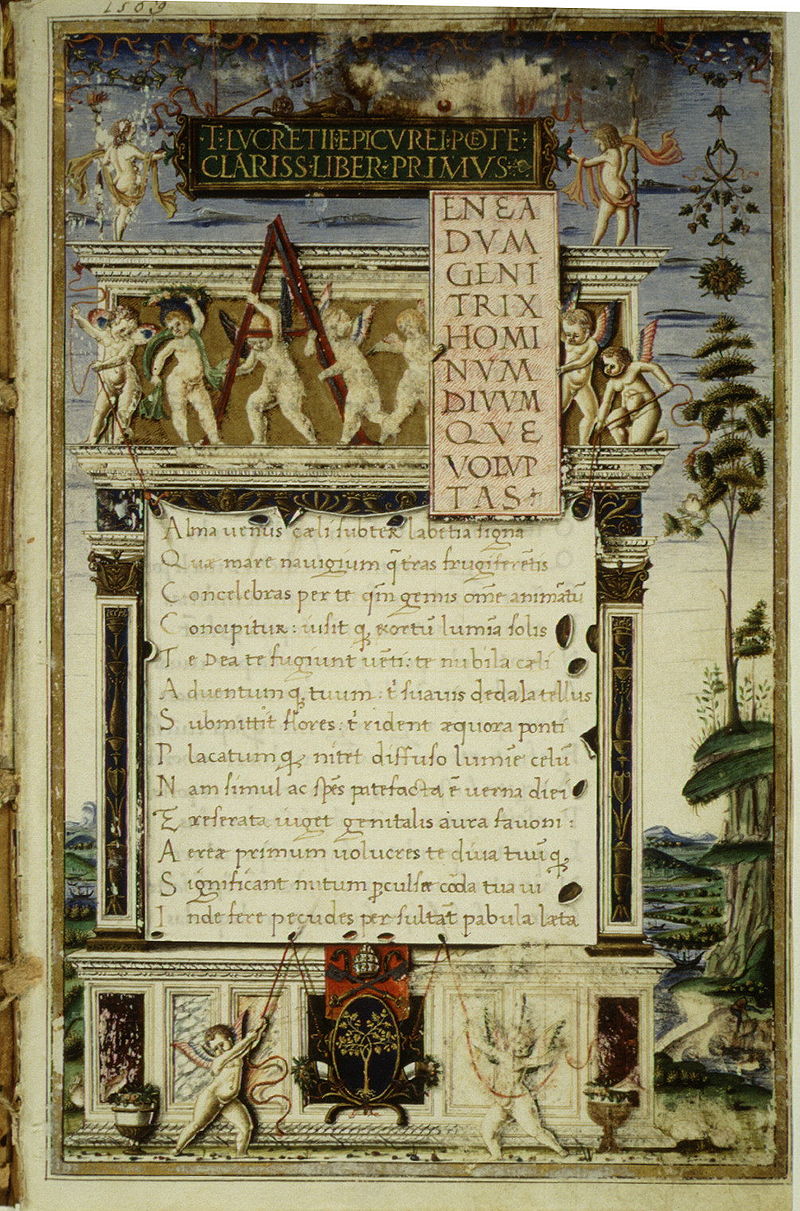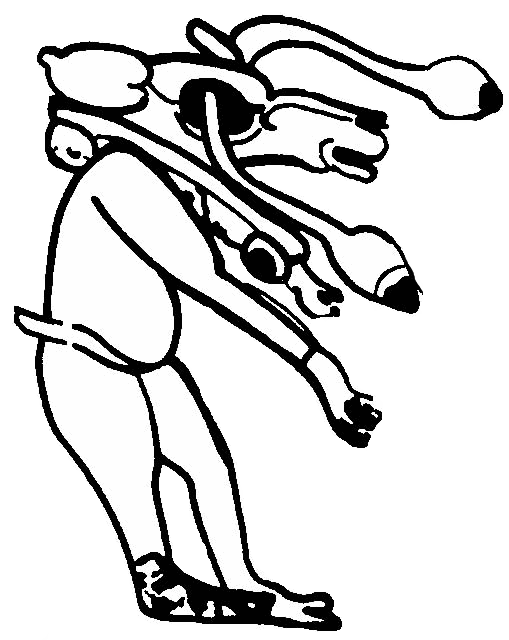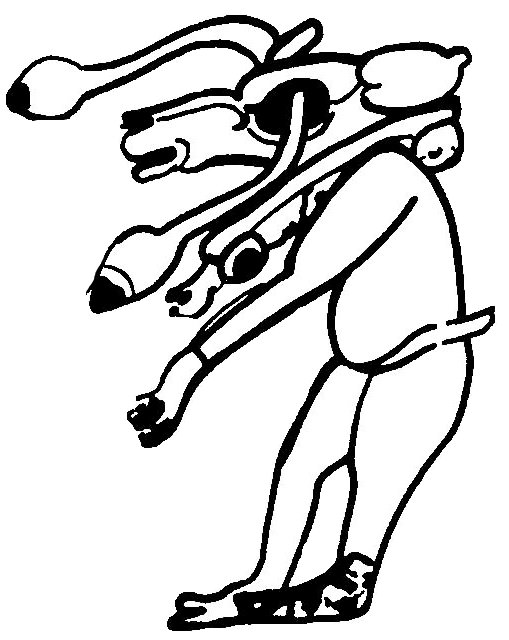池田光穂
ルクレティウス(Titus Lucretius Carus, ca. 99BC -55BC)『物の本質について』考える
「エピクロスの宇宙論を詩の形式で解説。説明の付か
ない自然現象を見て恐怖を感じ、そこに神々の干渉を見ることから人間の不幸が始まったと論じ、死によってすべては消滅するとの立場から、死後の罰への恐怖
から人間を解き放とうとした。6巻7400行からなる六歩格詩『事物の本性について(英語版)』(ラテン語: De rerum natura)を著して唯物論的自然哲学と無神論を説いた。/ルクレティウスの著作は長い間知られていなかった。1417年にイタリアの人文主義者ポッ
ジョ・ブラッチョリーニによって、ドイツの修道院で『事物の本性について』の写本が再発見された。同書はルネサンス期の思想に大きな影響を与え、原
子論が発展する原動力となった」- ルクレティウス。
"De rerum natura was a considerable influence on the Augustan poets, particularly Virgil (in his Aeneid and Georgics, and to a lesser extent on the Eclogues) and Horace. The work virtually disappeared during the Middle Ages, but was rediscovered in 1417 in a monastery in Germany by Poggio Bracciolini and it played an important role both in the development of atomism (Lucretius was an important influence on Pierre Gassendi) and the efforts of various figures of the Enlightenment era to construct a new Christian humanism. Lucretius's scientific poem "On the Nature of Things" (c. 60 BC) has a remarkable description of Brownian motion of dust particles in verses 113–140 from Book II. He uses this as a proof of the existence of atoms." - Lucretius.
"De rerum natura (Latin: [deːˈreːrũn.naːˈtuːraː]; On the Nature of Things) is a first-century BC didactic poem by the Roman poet and philosopher Lucretius (c. 99 BC – c. 55 BC) with the goal of explaining Epicurean philosophy to a Roman audience. The poem, written in some 7 400 dactylic hexameters, is divided into six untitled books, and explores Epicurean physics through poetic language and metaphors.[1] Namely, Lucretius explores the principles of atomism; the nature of the mind and soul; explanations of sensation and thought; the development of the world and its phenomena; and explains a variety of celestial and terrestrial phenomena. The universe described in the poem operates according to these physical principles, guided by fortuna ("chance"),[2] and not the divine intervention of the traditional Roman deities." - De rerum natura.
"[T]he historian and
literary scholar Stephen Greenblatt wrote a popular history book about
the poem, entitled The Swerve: How the World Became Modern. In the
work, Greenblatt argues that Poggio Bracciolini's discovery of De rerum natura reintroduced important ideas that sparked the modern age"- De rerum natura.


リンク
テキスト
文献
- ルクレーティウス『物の本質について』樋口勝彦訳、岩波文庫、岩波書店、1961年
- 『万物の根源/世界の起源を求めて』(塚谷肇訳、近代文藝社)
- 『事物の本性について』(世界古典文学全集21、藤沢令夫・岩田義一共訳、筑摩書房)



sa
Copyleft, CC, Mitzub'ixi Quq Chi'j, 2015-2019
Do not paste, but [re]think this message for all undergraduate students!!!